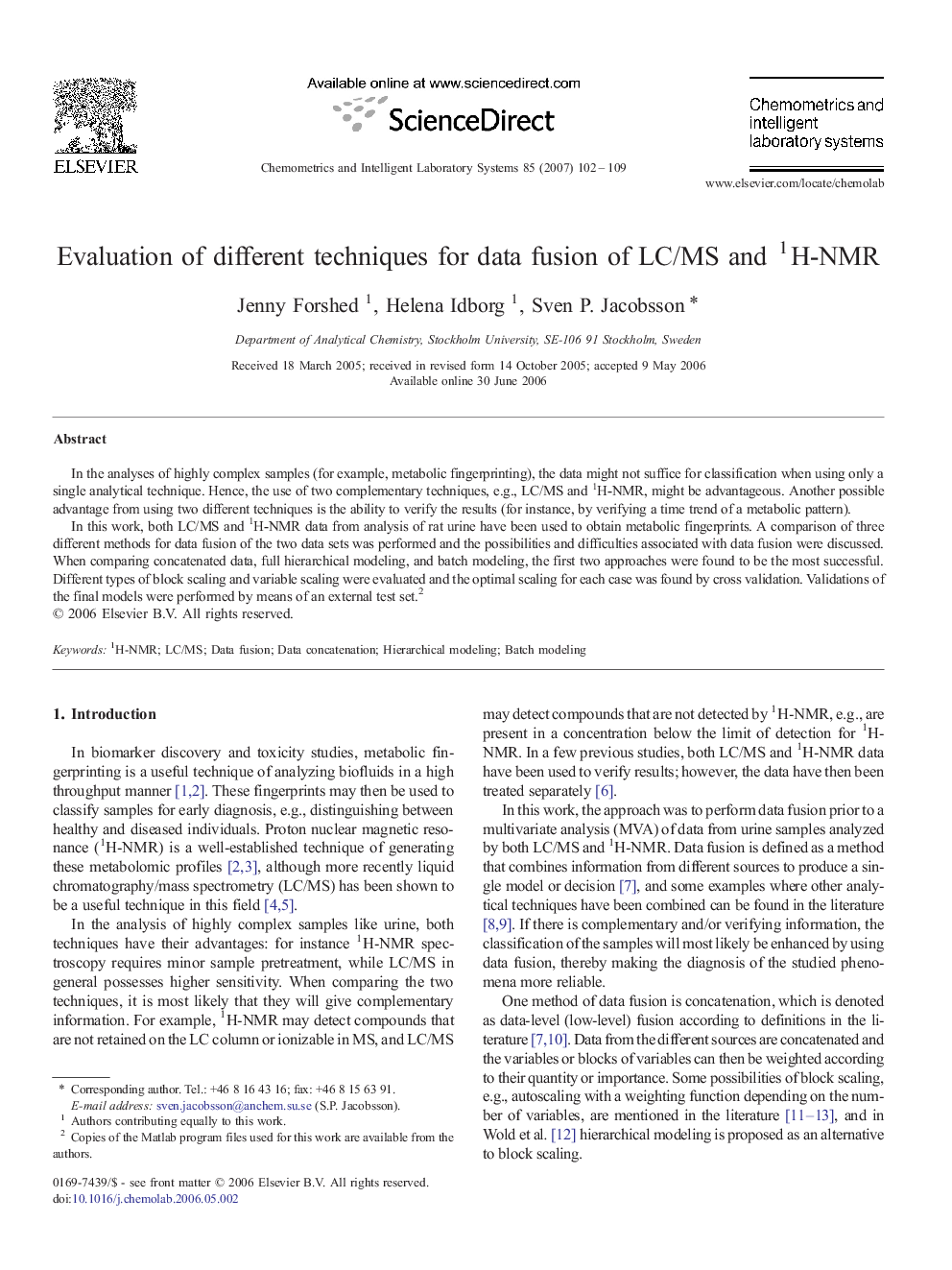| کد مقاله | کد نشریه | سال انتشار | مقاله انگلیسی | نسخه تمام متن |
|---|---|---|---|---|
| 1181451 | 962939 | 2007 | 8 صفحه PDF | دانلود رایگان |

In the analyses of highly complex samples (for example, metabolic fingerprinting), the data might not suffice for classification when using only a single analytical technique. Hence, the use of two complementary techniques, e.g., LC/MS and 1H-NMR, might be advantageous. Another possible advantage from using two different techniques is the ability to verify the results (for instance, by verifying a time trend of a metabolic pattern).In this work, both LC/MS and 1H-NMR data from analysis of rat urine have been used to obtain metabolic fingerprints. A comparison of three different methods for data fusion of the two data sets was performed and the possibilities and difficulties associated with data fusion were discussed. When comparing concatenated data, full hierarchical modeling, and batch modeling, the first two approaches were found to be the most successful. Different types of block scaling and variable scaling were evaluated and the optimal scaling for each case was found by cross validation. Validations of the final models were performed by means of an external test set.2
Journal: Chemometrics and Intelligent Laboratory Systems - Volume 85, Issue 1, 15 January 2007, Pages 102–109